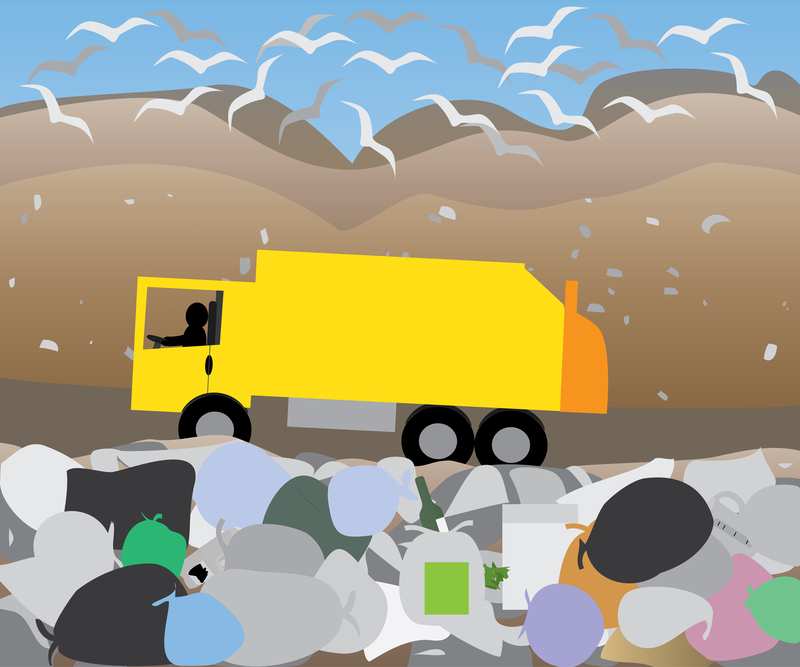The Smart Guide to Cutting Costs on Bulky Waste Item Removal
Bulky waste item removal is an essential but sometimes daunting task for homeowners, tenants, landlords, and businesses alike. Whether you're clearing out old furniture, broken appliances, or large items that simply won't fit in your regular waste bins, discovering the best ways to dispose of them without burning a hole in your pocket is vital. This smart guide offers practical, actionable advice and little-known tips for cutting costs on bulky waste item removal while keeping things legal, eco-friendly, and convenient.
Understanding Bulky Waste and Why Removal Gets Expensive
First, let's clarify what qualifies as bulky waste (sometimes called large item disposal). Common examples include:
- Sofas, mattresses, and beds
- White goods such as refrigerators, washing machines, and ovens
- Carpets, rugs, and large flooring materials
- Garden waste including logs, old fencing, and outdoor play equipment
- Electronics and IT appliances
- Large musical instruments like upright pianos
Why is the removal of these items so pricey? Typically, bulky waste can't be disposed of with regular rubbish collections. Many city councils and private companies charge separate, and sometimes hefty, fees. Labour, transportation, landfill taxes, and even special recycling requirements all contribute to the higher cost. That's why it pays - literally! - to have a smart strategy for saving money on large waste disposal.

Top Factors Driving Up Bulky Waste Removal Prices
To curb expenses, you must first know where the money goes. Major cost drivers in bulky waste removal include:
- Volume and weight: Larger and heavier items cost more to collect and dispose of.
- Accessibility: If items are hard to move or located several floors up, expect a surcharge.
- Transportation: The farther your waste needs to travel, the higher the price.
- Labour: Manual handling and disassembly mean higher costs.
- Local authority policies: Different councils have varied rules and pricing structures.
- Environmental regulations: Some items require special recycling or disposal procedures, e.g., fridges containing CFCs, which add to the price.
Understanding these factors is the first step to slashing costs on large item removal.
Cost-Effective Strategies for Bulky Waste Item Removal
1. Check Your Council's Free or Low-Cost Collection Services
Many cities and municipalities offer bulky waste collection services--sometimes even for free or at a significant discount. These collections may be offered once or twice a year, or by appointment for a nominal fee. Here's how to make use of local services:
- Visit your local authority's website to find their bulky waste disposal policy.
- Book ahead: Collection slots can get snapped up fast, especially in spring and autumn.
- Prepare items according to guidelines--some councils won't collect beds with mattresses, or will charge extra for certain items.
Tip: If your neighbors are also clearing out, consider combining larger pick-ups to split costs.
2. Sell or Donate Unwanted Items
One person's trash is another's treasure. Before you pay to get rid of bulky items, see if you can pass them on. Here's how:
- Sell online: Facebook Marketplace, eBay, Gumtree, and Craigslist are excellent for finding local buyers.
- Donate to charities: Many charities offer free collection of large furniture and appliances in good condition.
- Freecycle and Freegle: These networks connect you with individuals who'll collect and reuse your items for free.
Donating and selling can completely offset removal costs or even earn you some money!
3. Take It to the Tip (Household Waste Recycling Centre)
If you have access to a car or van, delivering bulky waste directly to your nearest tip is often the cheapest solution.
- Most household waste recycling centres accept a range of items, some for free (residents only).
- Items are often recycled instead of landfilled, which is an environmental plus.
- Check opening hours and item acceptance policies before heading out.
Tip: Not all centres accept vans or trailers, and some require booking in advance.
4. Hire a Skip--But Use It Wisely
For significant clear-outs (renovations, clearance of accumulated junk), hiring a skip might seem expensive, but you can minimize the cost by:
- Sharing with neighbors or family members tackling simultaneous projects.
- Choosing the right size: Overfilling a small skip or under-utilizing a large one both waste money.
- Sorting your waste: Some skip companies give discounts for segregated rubble, wood, or metals.
Remember: Permits may be required to place skips on public roads, adding to the total.
5. Use a Licensed Man & Van Service for Bulky Item Removal
Man and van services are flexible, fast, and less hassle than organising transport yourself.
- Get multiple quotes to compare prices.
- Check licensing--properly registered waste carriers reduce your risk of illegal dumping fines.
- Consider "wait and load" options for lower cost than traditional removals.
Advanced Tips: Reducing Bulky Waste Removal Costs Further
Break Down Large Items Yourself
Disassemble furniture, detach appliance doors, and break up branches or boards where possible. By reducing the size and volume, you can:
- Fit more into your vehicle (fewer trips to the tip!)
- Decrease the volume for which removal companies charge
- Potentially avoid extra "heavy lifting" labour charges
Plan Ahead for Big Clearances
Leaving it to the last minute can leave you with higher costs and fewer options. Plan your clearance around:
- Community clean-up days (often free collections)
- Seasonal discounts by removal firms during quieter months
- Coordinating with property move-in and out dates
Group Your Bulky Waste with Others
Joining forces with neighbours for a joint skip hire, van collection, or tip trip can slash costs substantially.
- Split the service call-out charge
- Negotiate discounts for multiple pick-ups
- Share transportation resources (e.g., borrow or rent a van together)
Bulk removals = better value -- so think communal!
Eco-Friendly and Legal Considerations for Bulky Waste Disposal
It's not just about price--responsible bulky waste disposal means knowing your legal and environmental responsibilities:
Stay Legal - Avoid Fly-Tipping Fines
- Always use a licensed waste carrier--ask for their registration number and check online.
- Get a receipt and waste transfer note when handing over your bulky waste.
- Never leave items on the street or in unauthorized areas; councils can trace dumped waste back to you and issue fines of up to ?5,000 (UK).
Pursue the Greenest Route Possible
Whenever possible, recycle or upcycle bulky waste. Not just mattresses and sofas, but:
- Metal appliances (fridges, cookers) for scrap
- Wood for reuse in DIY projects
- Children's play equipment, garden tools, etc., for community groups
Many organizations, including charities and repair cafes, refurbish and redistribute items you'd otherwise throw away.
Hidden Ways to Save on Large Item Disposal
Review Your Household Insurance
Did you know some insurers help with large waste removal after a flood, fire, or break-in? It's worth checking before paying out of pocket.
Get Creative With Reuse and Repurposing
- Turn old wardrobes into garage storage or upcycle materials for garden projects.
- Post "free to collect" ads online for parts--e.g., spare bed slats and drawers are often in demand.
- Local schools, theaters, and charities might accept or even collect unwanted large items.
Take Advantage of Retailer Take-Back Schemes
New fridge? Many retailers offer free or discounted collection and disposal of your old appliance when you purchase a replacement. The same goes for beds, sofas, and washing machines. Always ask when buying new!
What Does Bulky Waste Collection Actually Cost? (Price Comparison)
Let's break down typical costs so you can see what's possible to save:
- Council bulky waste service: ?10-?60/item or small load
- Licensed man with a van: ?50-?200+ depending on load & distance
- Skip hire: ?120-?300/week (depends on size and postcode)
- DIY tip trips: Free to ?10/vehicle (some charges for certain items)
- Charity collection: Free (if items in good enough condition)
Real savings happen when you match your needs to the lowest cost (or free) option, plan ahead, and avoid convenience surcharges whenever possible.
Bulky Waste Removal for Businesses: Extra Tips
- Check if your business rates include periodic large item disposal.
- Negotiate bulk collection rates or annual contracts with waste firms.
- Consider donation to local schools, charities, or recycling hubs to offset disposal costs.
Specialist Bulky Waste: Electronics and Hazardous Items
Old TVs, monitor screens, and certain appliances need specialist handling due to WEEE regulations. Ask your council or a certified contractor--never pay more than you need by mixing hazardous with regular bulky waste.

Summary: Your Bulky Waste Removal, the Smart & Savvy Way
If you remember one thing from this comprehensive guide to cutting costs on bulky waste item removal, let it be this: Plan ahead and explore all options before booking the first available removal slot. Selling, donating, and DIY trips to the recycling centre can save hundreds of pounds (or dollars). Always check for free or community-run services, and if you hire a professional, get multiple quotes and check for necessary licences. Ultimately, the most cost-effective and eco-friendly solution is often a blend of these methods.
By using these strategies, you can remove bulky items cheaply, legally, and with minimal environmental impact--hassle-free. That's smart waste management!
FAQs About Bulky Waste Item Removal
- Q: Is bulky waste removal free in my area?
A: Many councils offer free collections for certain items--check your local government's website for eligibility. - Q: Can I donate any type of bulky item?
A: Charities and secondhand shops generally accept only items in good, reusable condition. Always call ahead to confirm. - Q: Can I be fined for leaving bulky waste outside?
A: Yes, illegal dumping carries steep fines and possible prosecution, so always use legitimate disposal channels. - Q: What should I do with hazardous bulky waste?
A: Items like fridges, freezers, TVs, and chemical containers must be handled by licensed professionals or at authorised recycling centres.
Ready to tackle your next decluttering project? Save money, stay green, and make bulky waste removal a breeze with these cost-cutting tips!